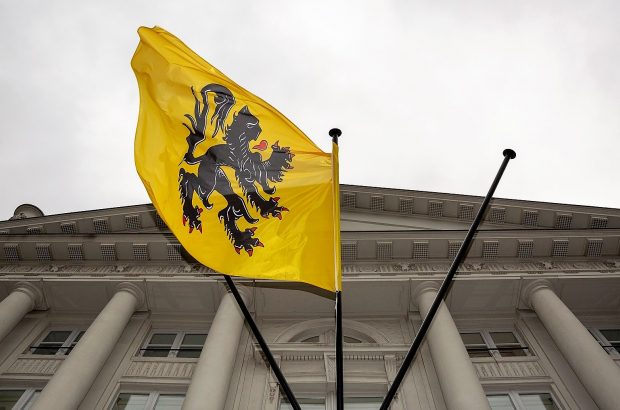- Daily & Weekly newsletters
- Buy & download The Bulletin
- Comment on our articles
Flemish Community Day: scaled back but still festive this weekend
This year 11 July falls on a Saturday, so what a shame that Vlaanderen Feest had to rein in its celebration because of the coronavirus. Still, the scaled-back party has a lovely initiative at its core.
Flemish Community Day is an annual holiday celebrated by the entire region. Its roots are in a battle that is legendary among the Flemish.
On 11 July 1302, the French cavalry rode into what is now West Flanders seeking to put down an uprising that had started two months before in Bruges. Instead, a 9,000-strong civic army made up of farmers and craftspeople drove them back, winning what came to be known as the Battle of the Golden Spurs – named after the spurs the Flemish took off their dead enemies’ boots.
The battle has gone done in history as an act of courageous defiance in the face of persecution, and in the 1970s the date was chosen as Flanders’ annual Community Day. Normally it consists of a week-long series of events and activities known as Vlaanderen Feest (Flanders Parties).
This year, the region is concentrating its efforts on Zomerstraten, or Summer Streets. Cities, towns and citizens can organise street parties with subsidies from the government of Flanders. Anyone wanting to organise a Zomerstraat can visit the website to find out how.
Every Zomerstraat is also listed on a map, so those looking to meet people in their neighbourhood can check to see if there is one nearby. “This summer, Flanders is our bubble,” says Flemish minister-president Jan Jambon (N-VA), referring to our corona crisis social bubbles. “We are bringing small groups of people together and rediscovering our own neighbourhoods and districts.”
The Zomerstraten are launching this Friday in honour of Flemish Community Day but can be organised until the end of September. This way Zomerstraten will come and go in different locations until the end of the summer.

Brussels also joins the party every year with Brussel Danst, which sees performances taking place both indoors and out all across the city, culminating in a big dance battle. This year the same concept will apply, but the performances will be spontaneous, surprising passers-by. There is also a special kids’ festival on Muntplein.
For more of a planned experience, many free walking and cycling tours have been arranged, with all kinds of themes. Learn about Brussels women who made history, for instance, or the famous writers who once roamed the cobblestoned streets. Most of the walks (which are of course in Dutch) are already full, so book immediately.
For those who prefer to stay home this year, Radio 2 is broadcasting 100 of the most popular Flemish songs from in front of the City Hall on Grote Markt. You can hear them on the radio or watch them as they work online. You can even vote ahead of time for a song you want to hear.
“On 11 July, we traditionally put the strong bonds between Brussels and Flanders in the spotlight, and this year is no different,” says minister Benjamin Dalle (CD&V), responsible for Flanders’ interests in Brussels. “So we’re offering an alternative way to bring people together to experience Flemish Community Day in the city or at home. It will be a very unique day, with much to see and hear in the streets of Brussels.”
Photos, from top: ©David Stockman/BELGA, courtesy Plan B



















